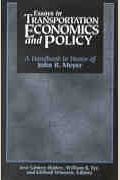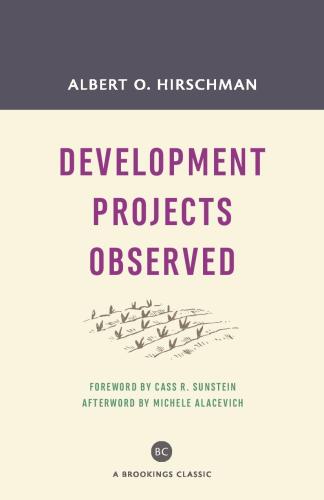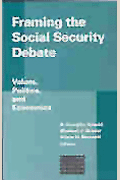Richard Thaler was just awarded the Nobel Prize in Economics. Here is a review of his latest book, Misbehaving, which first appeared in The Guardian.
Professor Richard Thaler is a bit lazy, prone to procrastination and likes his booze: his observations, not mine. He is also the president of the American Economic Association, a role held in the past by such luminaries as Milton Friedman, JK Galbraith, Gary Becker and Amartya Sen.
That a person with such everyday flaws has scaled the unforgiving heights of the economics establishment is striking in itself. Even more so is the fact that he has done so by turning those weaknesses into the very subject of a new branch of economic science. Thaler has spent a career seeking to understand individuals as they really are – chock-full of weaknesses, irrationalities and idiosyncrasies. He labels these creatures “humans”, rather than as “econs”, walking calculators rationally optimising their utility.
Thaler is a brilliant scholar, endlessly curious, empirically inclined and public spirited. But he is also the perfect spokesman for an approach that has come to be known as behavioural economics. He does not come across as someone lecturing others about their shortcomings, because they feel like his shortcomings too. Thaler recounts a dispute at an academic conference with the orthodox economist Robert Barro: “I said that the difference between our models was that he assumed that the agents in his model were as smart as he was, and I assumed they were as dumb as I am. Barro agreed.” (It is of course very clever of Thaler to share this story.)
Along with Cass Sunstein, Thaler became an international public intellectual in 2008, with the publication of their bestselling book Nudge. Both have influenced public policy in the US, and even more so in the UK. After convincing some of the bright young things around David Cameron, Thaler helped to set up and run the Behavioural Insights Team in Downing Street after Cameron’s entry in 2010 (disclosure: I played a small role here). Immediately and inevitably nicknamed the “Nudge Unit”, this team has played a quiet but important role, importing many of the findings of Thaler and his tribe to the everyday business of government.
The central promise of behavioural economics as applied to policy is to use people’s weaknesses to help them achieve their goals. We want to save more for retirement, but we are myopic and suffer from inertia. So, most British employees are now being automatically enrolled into their occupation pension funds: a direct lift from Nudge.
Smaller reforms have resulted too, including a change in the wording of the letter sent to those who failed to pay their taxes on time. After testing different phrasing, Cameron’s nudgers found that “You are currently in the small minority of people who have not paid their taxes on time” worked best, increasing subsequent payments by more than five percentage points.
In his new book, Thaler tells the gripping story of his own career in economics and the development of the new behaviourally influenced branch. And yes, I did say “gripping”. As a natural writer with an eye for the telling anecdote or chance for a joke, Thaler has produced a novelised intellectual history, replete with heroes and villains, triumphs and disasters, conflicts and comradeship.
Struggling with his PhD at the University of Rochester in upstate New York, he is advised to check out some new work in psychology by Daniel Kahneman and Amos Tversky. He recounts: “I started with the duo’s summary paper, published in Science: ‘Judgment Under Uncertainty: Heuristics and Biases’. At the time I was not sure what a heuristic was, but it turns out to be a fancy word for a rule of thumb. As I read, my heart started pounding the way it might during the final minutes of a close game. The paper took me 30 minutes to read from start to finish, but my life had changed forever.”
As his story unfolds, a ragtag band of economists, social scientists and psychologists find each other’s work and begin, bit by bit, to dismantle some of the basic tenets of economic theory. Drawing on studies of how people behave in real life – buying and selling wine, competing in gameshows, drafting NFL players, saving for old age – the rebels showed that people consistently and predictably failed to act as the economics textbooks said they should.
In 2004, Thaler was accused by his colleague Casey Mulligan, a hardcore Chicago-school economist, of engaging in “paternalism”. “At the University of Chicago,” Thaler explains, “you can call someone a Marxist, an anarchist, or even a Green Bay Packers fan [the arch-rival of the Chicago Bears], but calling a colleague a paternalist is the cruellest cut of all.” But Thaler does not think that nudging someone to save more or eat better is paternalism, and tried to say so. “Struggling for the right words, I blurted out: ‘Maybe we should call it, I don’t know, libertarian paternalism.’”
Excited by this formulation, Thaler turned to his new collaborator, the legal scholar Sunstein. He liked it, they wrote a long article that became a book; then an editor coined the term “nudge” to describe the approach, and the rest is history. It is reassuring to learn that the phrase was born in the heat of the moment, since it obscures rather than clarifies their philosophical stance. It is not “libertarian” in any sensible rendering of the term – simply a soft form of paternalism rather than a coercive one.
Sunstein has been pursuing a post-Nudge solo career too, with his own volume, Why Nudge? The Politics of Libertarian Paternalism (Yale, £16.99). With John Stuart Mill as his stalking horse, he sets out to demolish the central foundation of modern liberalism: the idea that people generally know and pursue their own best interests. Since they do not, Sunstein says, a degree of paternalism is in order. Mill is turned into something of a straw man – for one thing, he knew people would make a mess of things. Still, it makes for a more grounded argument.
But Sunstein gets into trouble when he turns to the real politics of nudging. He attempts to show that Mike Bloomberg’s attempt to ban “big gulp” sodas in New York was nonlibertarian paternalism, since some people might want a lot of soda in a “single large container”. But what people who wanted more soda had to do was buy two cups. It is hard not to wonder whether, if the initiative had proven legal and popular (it was neither), Sunstein would be claiming it as a nudge.
Sunstein appears not to suffer from some of Thaler’s human frailties. He is immensely productive, for one thing, churning out first-rate journal articles, books and journalism at a prodigious rate. After being fiercely criticised at a workshop at the Chicago Law School in the mid-90s, Thaler and Sunstein retired exhausted to the faculty club. As Thaler recounts: “I had a double scotch, and Cass had three Diet Cokes – his strongest and favourite elixir.”
There is an irony here. Of the two, it is the economist Thaler who seems more human, while the earnest Sunstein veers closer to “econ” territory. Perhaps that is why they did their best work together.
The Brookings Institution is committed to quality, independence, and impact.
We are supported by a diverse array of funders. In line with our values and policies, each Brookings publication represents the sole views of its author(s).








Commentary
Richard Thaler finds a policy use for human weakness, and wins the Nobel
October 13, 2017